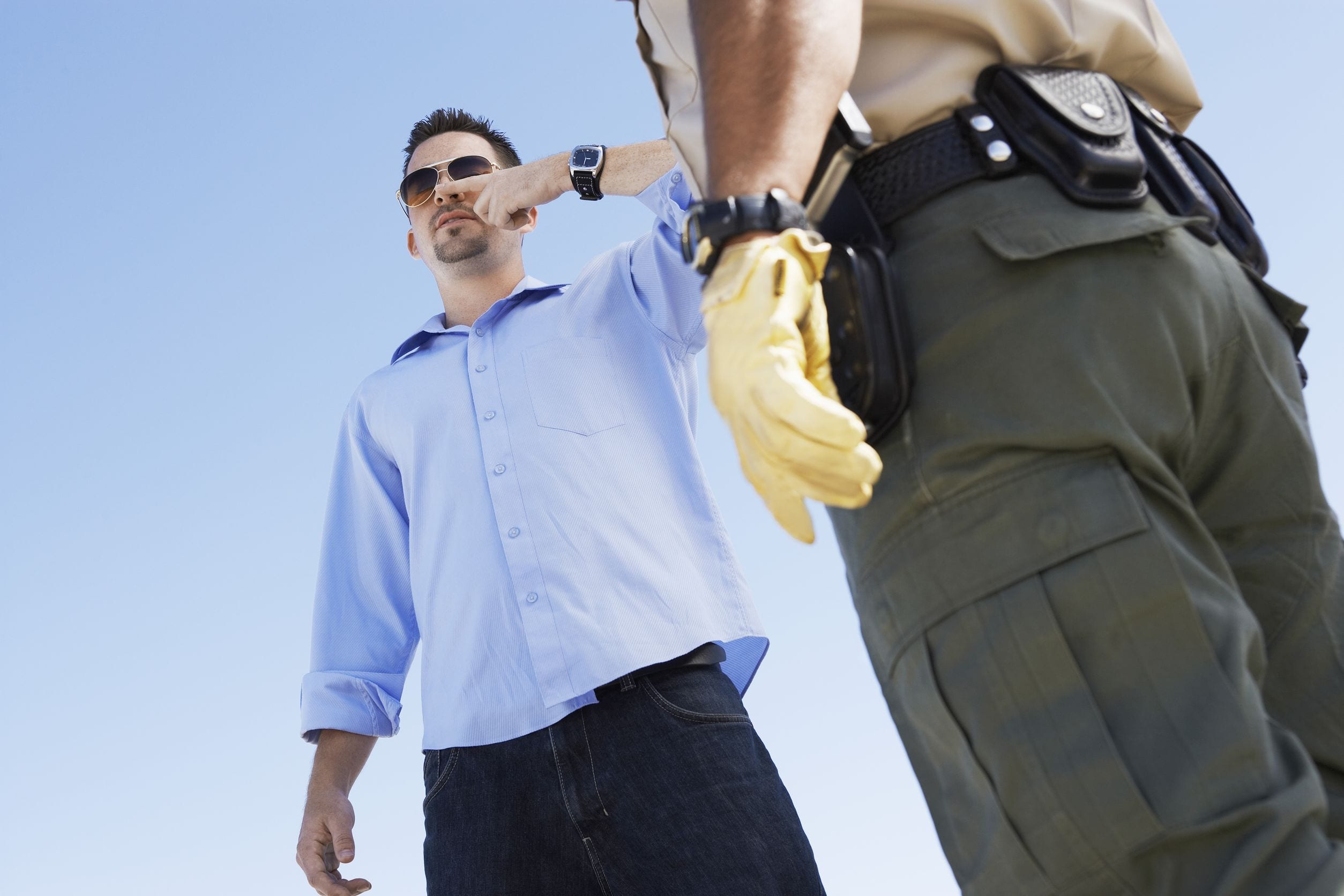- Home
- THE FIRM+
- Criminal Defense+
- CASE RESULTS
- AREAS WE SERVE+
- FAQ’s
- Blog
- Contact
AZHARI LLC BLOG

Posted By: Sami Azhari
Category:
We are regularly asked about the laws surrounding field sobriety testing in Illinois, and whether individuals are required to submit to field sobriety testing. The short answer is no — but it’s important to fully understand the process of a drunk driving traffic stop and arrest, and to know your rights ahead of time.
If you are stopped at a sobriety checkpoint or pulled over for suspected drunk driving, your actions during the traffic stop may make the difference between a DUI arrest and being released without incident. That’s why it’s so important to know exactly what to do in this situation.
Below, we’re going to cover the types of sobriety testing used by police and discuss which types of tests you can (and should) refuse, and which tests you’re required by law to submit to.
Illinois Field Sobriety Testing
Field sobriety tests are one of the tools police officers use to obtain probable cause for a DUI arrest. These mental and physical tasks are designed to determine whether the suspect is intoxicated – although they are far from foolproof.
Common field sobriety tests include:
- Horizontal gaze nystagmus test to look for involuntary jerking of the eyes as they gaze towards the side.
- One-leg stand, which tests the suspect’s balance and ability to divide attention
- Walk-and-turn test used to gauge physical coordination
- Tasks such as stating the alphabet backwards
The problem with field sobriety tests is that they are not intuitive, and perfectly sober people often fail them. The added stress of being in the presence of police is also likely to affect your performance.
Moreover, whether you pass or fail is entirely subjective. Unlike with machine testing, where your BAC simply reads as over or under a certain number, the results of field sobriety tests are determined by the officer administering them.
Oh, and if you fail a field sobriety test, this evidence can and will be used against you.
Because of this, we advise that anyone under any circumstance refuse field sobriety testing. It should be noted that many police officers will use your refusal as a reason to arrest you – but if they’re already asking to test you, chances are strong that they plan to arrest you anyway.
Field Breathalyzer Testing in Illinois
The second kind of tests often given to potential drunk drivers are portable breathalyzer tests. These tests are administered on site to obtain some indication of a person’s blood alcohol concentration.
Importantly, you are not required by law to submit to portable breathalyzer testing. However, you will most likely be arrested for suspected drunk driving if you refuse a breathalyzer.
If you have not had anything to drink that day or recently used mouthwash, it’s most likely okay to submit to portable breathalyzer testing. If you have no blood alcohol content, the likelihood of a false positive is low, and submitting to breathalyzer testing will help you avoid a DUI arrest.
However, portable breathalyzer testing is woefully inaccurate. The instrument may overestimate blood alcohol content by as much as 50%, and testing blood alcohol content with a breathalyzer is prone to issues such as gastric malabsorption of alcohol.
If you have had anything to drink (even one drink), we recommend refusing portable breathalyzer testing. Why? Because if you test as being over the legal limit, this evidence will be used against you in court.
If you refuse portable breathalyzer testing and are arrested, you will undergo more accurate blood alcohol testing after your arrest. However, you will not face any additional legal consequences for having refused portable breathalyzer testing.
Chemical Blood Alcohol Testing
Chemical blood alcohol testing is different. This type of testing is only administered after arrest, and it is typically a blood test or a more advanced breathalyzer test.
These are the tests that most people are referring to when they say that you have to take them or lose your license. This is because they are covered under implied consent laws — you are legally agreeing that you will take them simply by driving a vehicle.
Technically, they are not absolutely required by law unless someone was injured in a drunk driving accident, but – as mentioned above – you will face legal consequences if you refuse.
If you are arrested for a DUI, we recommend that you speak to an attorney before submitting to chemical blood alcohol testing if at all possible. You also have the right to request an independent chemical test, administered within two hours of your arrest and at your own personal expense.
Facing DUI Charges? Schedule a Consultation Today to Discover Your Defense Options
A DUI arrest and conviction can be life-changing. That’s why it’s so important to be aware of your rights, and to avoid drunk driving by planning ahead before enjoying a night out.
If you’re currently facing DUI charges, all hope is not lost. Depending on the circumstances of the alleged offense, a number of DUI defense strategies could be available to help your case. Schedule a consultation with a DUI defense lawyer to learn more.
About the Author
Sami Azhari has been working as a lawyer since 2007, after receiving his Juris Doctor from the Michigan State University College of Law. He has handled numerous state and federal cases, and is known throughout the Chicago and Rolling Meadows area for providing his clients with high-quality, skilled representation. He has been recognized by SuperLawyers, the National Trial Lawyers Association, and other notable organizations, and has spoken at a number of legal conferences.


























































